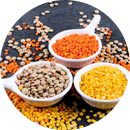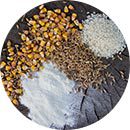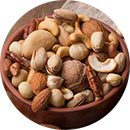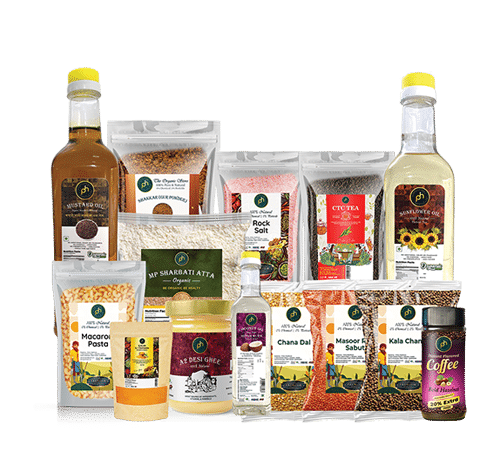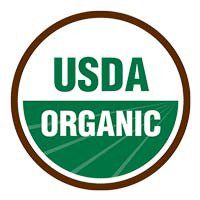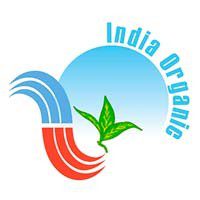Heart health and organic food are strongly related. Food grown organically is high in nutrients and devoid of pesticides and toxins. On the other hand, cardiovascular wellness is a growing concern as heart disease is one of the leading causes of death worldwide. As a result, you must keep your heart healthy by eating an organic, balanced diet. Food labeled as organic is not genetically engineered and is grown without industrial pesticides and fertilizers. Because of this, it contains more nutrients and is free of dangerous compounds that could hurt the heart. Traces of these hazardous chemicals that raise the risk of heart problems may be found in foods grown with synthetic fertilizers and pesticides. According to studies, ingesting these foods frequently can result in clogged arteries, raised blood pressure, and heart problems.
Organic food is also abundant in polyphenols and antioxidants for heart health. Antioxidants shield our bodies from the harm that free radicals may do, which can produce oxidative stress and inflammation that harms the cardiovascular system. To prevent atherosclerosis, which is a condition where the arteries harden and obstruct blood flow to the heart, polyphenols aid in promoting blood circulation.
The fatty acid omega-3 in organic food is another element that supports heart health. Organic dairy and meat products contain omega-3 fatty acids, which help lower blood pressure, prevent blood clots, and reduce inflammation. Maintaining an ideal weight, which is essential for optimal heart health, can also be facilitated by consuming ethical meat and dairy.
Organic food not only benefits the heart but also the body as a whole. Eating organic food free of hazardous chemicals can preserve a well-functioning intestinal biome. A healthy gut microbiota increases nutrition absorption, lowers oxidative stress and inflammation, and lowers the risk of cardiac diseases.
Benefits Of Organic Food In Heart Health
The following are some advantages of eating organic food for the heart.
Reduced contact with the poison.
The fact that organic food decreases exposure to pollutants is one of its most important benefits. Chemical pesticides and fertilizers that can be hazardous to the human organism, particularly the heart, are frequently sprayed on conventionally farmed food products. Heart failure, stroke, and hypertension are only a few cardiovascular illnesses associated with exposure to these chemicals. Contrarily, organic farming minimizes synthetic inputs using natural techniques like rotating crops, composting, and biological weed management. Organic food is, therefore, healthier and less hazardous to the heart because it contains fewer pollutants.
Higher level of nutrients
Because the soil used in conventional agriculture is usually rich in nutrients instead of land fertilized with chemicals, organic food is recognized to have a higher nutrient content. According to studies, sure of organic food’s vitamins, minerals, and antioxidants can substantially impact heart health. For instance, eating organic food can lower your chance of developing heart disease and stroke thanks to its high dietary fiber content. In addition to lowering cholesterol and inflammation, antioxidants like organic phytonutrients found in fruits and vegetables can help lessen the risk of heart disease.
Heart disease risk is reduced.
According to several studies, eating organic food may reduce your chance of developing heart disease. According to a 2019 study in the medical publication JAMA Internal Medicine, people who consume the most organic food have a lower risk of cancer and heart attacks. Nearly seven hundred thousand adults in France had their diets examined over five years for the study, and it was shown that those who ate organic food had a 25% lower risk of acquiring heart disease. The study’s authors hypothesized that this might be because organic food has more nutrients and fewer chemicals.
Increased sensitivity to insulin
Additionally, eating organic food may help increase your insulin sensitivity, which is crucial for keeping a healthy heart. Type 2 diabetes, hypertension, and heart failure are just a few cardiovascular disorders linked to insulin resistance, which is when the body gets less receptive to insulin. According to a 2018 study in the Archives of Agriculture and Food Chemistry, the polyphenol quercetin in organic foods, including broccoli, apples, and onions, can reduce insulin resistance. The authors hypothesized that a diet rich in quercetin might lower the risk of acquiring type 2 diabetes and heart disease.
Conclusion
Eating organic food is good for your heart. Organic food improves insulin sensitivity, lowers heart disease risk, has a higher nutrient content, and is less harmful. Our diet can significantly protect your heart health by including organic fruits, veggies, and meat. It’s also critical to remember that organic food is not a panacea and that lifestyle modifications like daily physical activity and stress reduction are equally necessary for preserving good heart health.
 English
English 







